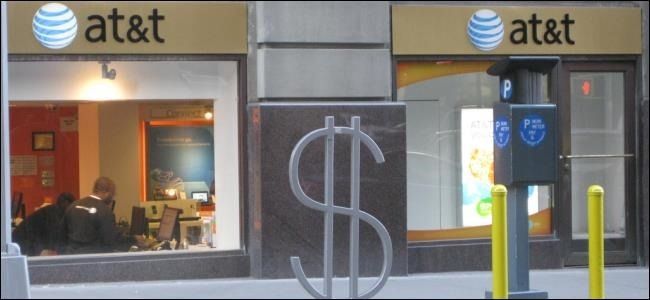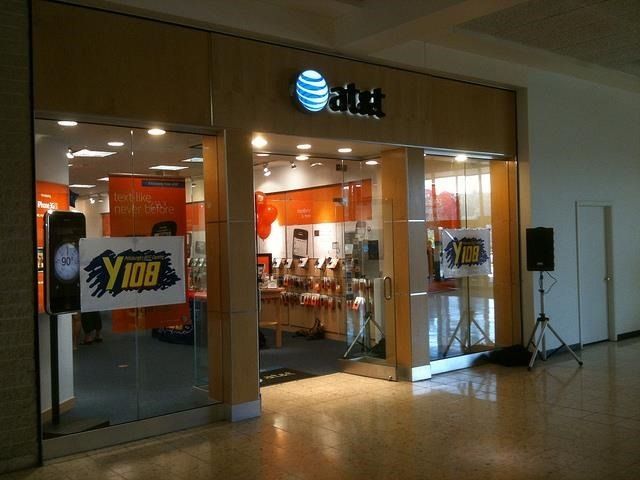Quick Links
We've written about all the different ways cellular carriers are gouging you, from long, expensive contracts to $22,000 bills for roaming data. Believe it or not, some of these terrible practices are actually changing.
Some of these examples are from Canada. If you live in the US or elsewhere and are frustrated with your own cellular carriers, seeing what Canadian cellular carriers get away with will make you appreciate your own local carriers.
Bring-Your-Own-Device Discounts
In the past, cellular carriers have charged everyone the same amount for their monthly contract. Whether you got a subsidized iPhone at $99 or you purchased a Nexus phone outright and brought it to the carrier, you'd be paying the same amount of dollars per month either way. In effect, every customer on the cellular carrier was paying for a subsidized device, whether or not they got one. When their two-year-contract was up, the only sensible thing to do was immediately jump into another two-year contract with another subsidized device. If you didn't, you'd be paying the same amount per month without even getting a new phone.
This is finally starting to change. T-Mobile doesn't sell subsidized devices like a traditional carrier -- they'll sell you a new smartphone on an installment plan if you like, effectively decoupling the price of the phone from the price of the monthly service. Of course, if you don't buy a phone on an installment plan, you don't have to pay the installment plan fees -- which is effectively what you're doing with other carriers.
Other carriers are even starting to change. Even AT&T has started offering a bring-your-own-device discount that allows you to save money if you don't need to buy a new phone.
There's one other big problem with this model -- you're actually paying more for the phone over the life of the contract than if you purchased it outright. Of course, this is what we'd expect when it comes to every other type of product -- no one purchases a TV on an installment plan if they can help it. They know they'll pay more for the TV in the long run.
Insane International Data Roaming Fees
International data roaming fees have had no link to reality in the past. There are many stories from people in the US travelling to Canada and getting hit with an $11,000 bill for using some data or people from Canada travelling to Mexico and getting hit with a $22,000 bill -- and that's just for roaming fees within North America!
T-Mobile recently dumped international data roaming fees entirely, offering a cheap plan for international voice minutes. This means you can use a T-Mobile phone abroad without coming back to a bill for tens of thousands of dollars. While AT&T still charges for international data overages, their charges are much cheaper than before. Hopefully all carriers are coming back down to reality and giving up the occasional juicy $10,000 bills they've been able to stick people with.
No More Three-Year Contracts
Believe it or not, Canada still had three-year wireless contracts up until December 2, 2013. Cellular contracts worked just like they did in the US -- you'd pay the same amount up front for a phone, and probably more per month for your phone bill. But you'd be paying off your contract for three years instead of two. That means you'd be stuck with a carrier for much longer, dramatically overpay for your phone, and probably end up with an out-of-date phone by the end of your three-year contract.
Amazingly, three-year contracts have finally gone away in Canada -- thanks to government regulation, as Canadian cellular carriers were never going to do it on their own.
Punitive Early Termination Fees
If you think the United States' carriers are bad, looking at what happens in Canada will make you happy you only have to deal with US carriers. Wherever you live -- in the US, Canada, or elsewhere -- you'll probably have to pay some amount of an early termination fee or cancellation fee if you want to get out of your cellular contract early. This fee is now linked to reality, so it will allow the carrier to recover the amount of a subsidized phone you have yet to pay off. This makes sense and is fair.
Only recently in Canada, these early termination fees were used only as weapons. Less than two months ago in mid-November 2013, a woman in Vancouver, BC paid her cellular bill entirely and left her three-year contract two weeks early. She thought she was in the clear, having paid her bills in full. But Rogers Wireless, never one to turn down an easy charge, sent her a bill for a $180 early termination fee. As she had paid the cost of her contract in full, this fee had no link to reality -- it was just a punitive charge her carrier could hit her with under the harsh terms of her contract.
When the woman said she wouldn't pay, Rogers Wireless said they'd ding her credit score. She ended up escaping the charge when the media got involved and Rogers Wireless suddenly discovered that the charge was in error, so everyone should stop paying attention to their bad behavior and go away because it was really just a mistake all along. [Source] We don't know just how many people have paid these fees without going to the media.
Either way, such punitive early termination fees are now a thing of the past.
No Tethering Fees, Sometimes
There's a good chance you probably still have to pay tethering fees if you're on most carriers, but at least you don't have to pay them on Verizon in the USA. Thanks to a settlement with the FCC, Verizon can't charge you extra for Wi-Fi tethering. That means you can use the data you're paying for with no additional charges on Verizon.
Unfortunately, this isn't necessarily a precedent. Verizon had to agree to "open access rules" when they paid for the 700 MHz wireless spectrum, and the FCC ruled that this meant they couldn't block tethering apps or charge extra for them. These rules won't apply to other carriers. T-Mobile does offer some tethering data for free now, however.
Not everything is changing and not every individual carrier has changed. Your cellular carrier is probably still gouging you. However, we've made some progress and reigned in some of the worst excesses. Things aren't as bad as they were at the start of 2013.
Image Credit: zombieite on Flickr, RJ Schmidt on Flickr, Colleen Lane on Flickr, Morgan on Flickr, Matt Biddulph






